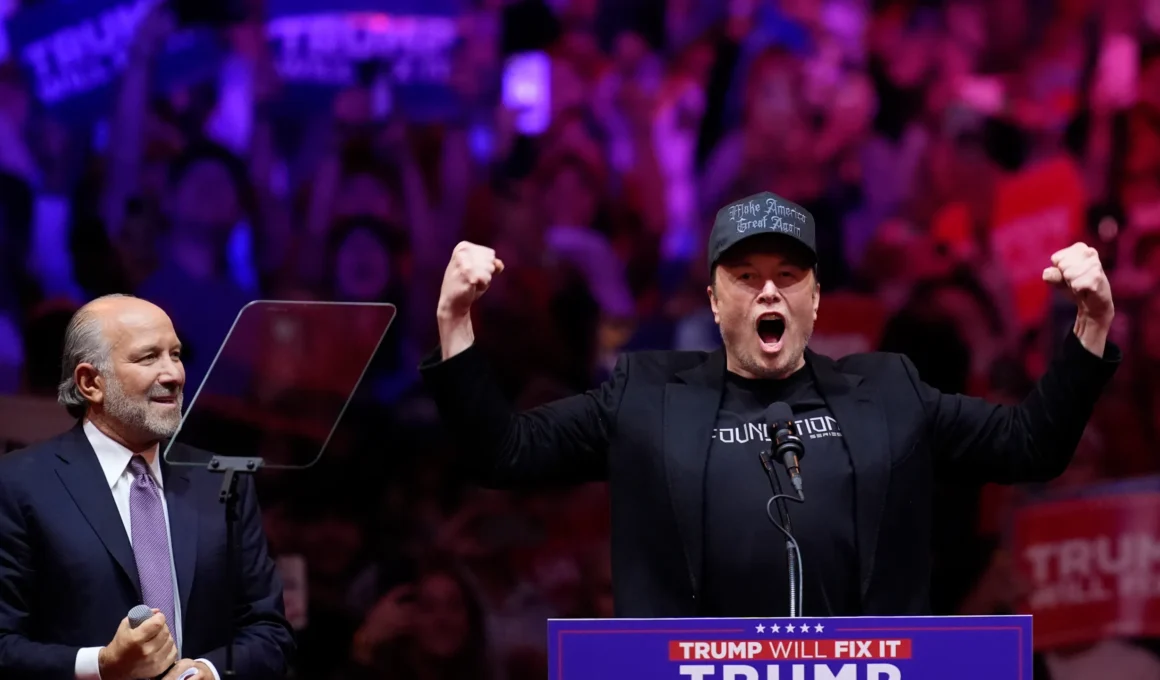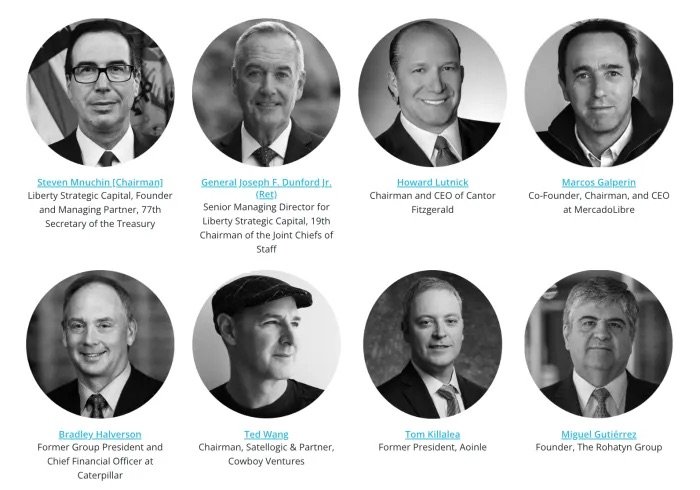by Whitney Webb, Unlimited Hangout:
 Despite Republican rhetoric and Trump’s past policy on the Paris agreement, the incoming Trump administration is being heavily influenced by figures tied to carbon markets and efforts to implement dubious climate finance schemes.
Despite Republican rhetoric and Trump’s past policy on the Paris agreement, the incoming Trump administration is being heavily influenced by figures tied to carbon markets and efforts to implement dubious climate finance schemes.
While many Republicans for years have railed against the official narrative around climate change and many of the solutions promoted to mitigate it, climate finance is poised to make a comeback over the next 4 years, despite Republicans taking both the White House and the legislature by a significant margin. This is because many of the most influential names in the incoming Trump administration, as well as the previous one, have become intimately involved in creating carbon markets in recent years, while others have a long-standing track record of pushing carbon taxes and other forms of “carbon pricing.”
TRUTH LIVES on at https://sgtreport.tv/
Chief among these is Howard Lutnick, the co-chair of Trump’s transition team who has stated that he is tasked with finding the “talent” for the incoming administration. Lutnick is the long-time and current head of Cantor Fitzgerald, which was one of the earliest players in emission trading and has since become a global leader in ESG investing, “sustainable infrastructure” financing and green bonds. For example, Cantor’s sustainable infrastructure fund is expressly committed to “digital transformation, decarbonization and the improvement and modernization of aging infrastructure,” while “a primary focus for the Fund will be to invest in issuers that are helping to address certain United Nations Sustainable Development Goals through their products and services.” In addition, the top constituent of another Cantor infrastructure fund is Invenergy, a renewable energy company that has received a significant amount of subsidies from the Biden’s controversial Inflation Reduction Act and is run by the country’s first “wind billionaire” Michael Polsky.

Lutnick also servers on the board of a satellite surveillance company called Satellogic. In addition to Lutnick, former Trump Treasury Secretary Steve Mnuchin chairs its board and also on the board is Joe Dunford, the former head of the Joint Chiefs of Staff of the U.S. military under Trump. Satellogic is an integral part of a consortium attempting to use opaque contractual agreements at the municipal level to impose a massive, blockchain-based carbon market on Latin America. That carbon market, operating under the name GREEN+, is poised to be built on a Bitcoin side-chain and, as previously reported, its carbon credit scheme is deeply inequitable for Latin American communities. For instance, the only money communities could make from the scheme would be only available for GREEN+-approved “sustainable” projects while GREEN+ members would reap the bulk of the profits. The program would also subject communities to Satellogic’s satellite surveillance apparatus (tied to the U.S. government and Israeli intelligence) without their consent.
In addition, GREEN+ is notably tied to figures close to Trump’s allies in the region. For example, a major figure in Nayib Bukele’s political party – San Salvador mayor Mario Durán – is a vice president of one of the main groups orchestrating the GREEN+ scheme while the Endeavor Argentina network, which has very close ties to Argentina’s Javier Milei, is also very closely linked to Satellogic. For instance, Satellogic itself is an Endeavor-backed company while Endeavor’s first billionaire entrepreneur, Marcos Galperín of MercadoLibre, serves on Satellogic’s board. In addition, a major investor in Satellogic, the dollar stablecoin issuer Tether, is also closely connected to Howard Lutnick. Lutnick is a long-time major advocate of Tether and Cantor Fitzgerald custodies the bulk of Tether’s U.S. Treasuries that back up their stablecoin and its peg to the U.S. dollar.
In addition to Lutnick, prominent Trump backer and donor Elon Musk, who has pledged to work with Lutnick to usher in an unprecedented age of government “efficiency,” has invested heavily in carbon removal technology and even created a $100 million prize to spur new carbon removal methods. Musk also previously broke ties with Trump during his previous administration after Trump pulled out of the Paris climate agreement in 2017. He is also a long-time advocate for carbon taxes. Musk previously lobbied the Biden administration on implementing a carbon tax, a policy supported by Biden’s Treasury Secretary Janet Yellen.
Yet, under the Trump administration, the push for a carbon tax was led by Republicans, reflecting the policy’s bipartisan support. That Trump-era proposal, known as the Baker-Shultz plan, called to repeal emissions regulations from the Environmental Protection Agency and a roll-back of some Obama-era climate policies in exchange for replacing them with a carbon tax. The plan was framed as a way to “let the market decide” how to price carbon as opposed to government. Something similar could be deployed by the next Trump administration as a “compromise” that would see the Biden-era climate policies that Trump campaigned against rolled back in exchange for the implementation of some form of “carbon pricing,” like a carbon tax.
The Baker-Schultz plan is named for James Baker and George Schultz, two Republicans who served in the Reagan and Bush Sr. administrations. This is notable as it was during the Bush Sr. administration that emissions trading was first created with government support. The father of emissions trading, first for sulphur dioxide and then again for carbon, is Richard Sandor, a former executive at the scandal-ridden, corrupt Drexel Burnham Lambert (Drexel’s most notorious criminal – Michael Milken – was pardoned by Trump during his previous term). Drexel was a key figure in the financial scandals of the 1980s, including the Savings & Loans crisis which had intimate ties to James Baker and the Bush family as well as the CIA and organized crime.
Read More @ UnlimitedHangout.com




